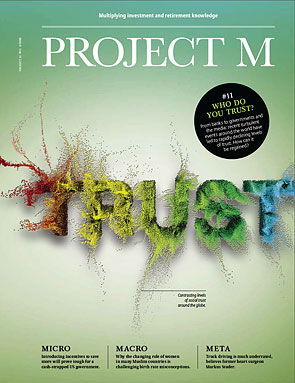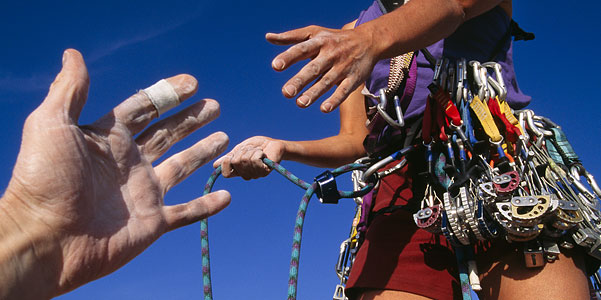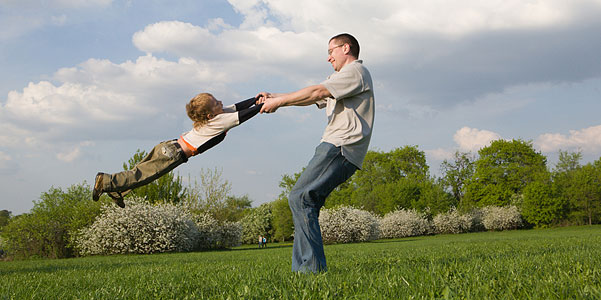When you think about it, most of us have a limited group of people we trust and even fewer we trust implicitly. So, it is surprising that so much of our everyday lives involve interactions in which we are totally dependent on strangers to respect.
Trust underpins the cooperation required in so many complex aspects of our lives that we are not fully aware of it. This includes everything from what we buy to what we buy it with, from the supply of electricity and water, to the smooth functioning of traffic – road, air and sea – and markets, as well as the systems that protect our homes and cities. All of this is often based on little more than trust that commonly accepted conventions will not be violated by any of the hundreds, even thousands, of people tangentially involved.
Tim Harford, author of the Financial Times’ "Undercover Economist," began one column describing a trustless world. He depicted a scene where a person walked into a corner store to buy a carton of milk, only to find the refrigerator locked.
Once the shopkeeper was persuaded to retrieve the milk, the situation deteriorated into an argument over whether the shopkeeper would hand over the milk first or the customer the money. Eventually, an elaborate simultaneous exchange is organized.
Yet, even this transaction was far removed from a Hobbesian world of "war of all against all." After all, the shopkeeper didn’t demand payment in precious metals and the customer didn’t insist that the quality of the milk be tested and certified by a public notary before the purchase – and neither resorted to gunfire.
Scientists say that it is virtually unheard of or any species, even our own prehistoric ancestors, to cooperate with anyone outside their extended family group. Paul Seabright, an economist from the University of Toulouse, says that mistrust and violence are part of our genetic makeup, but abstract, symbolic thought has permitted us to accept one another as "honorary relatives."
"Sometime within the last 10,000 years, we began to interact as strangers and overcome our deeper instincts to violence and suspicion of outsiders," he explains.
There is a mounting body of work supporting this. Research shows that trust influences a range of economic and political phenomena. Nobel Memorial Laureate Kenneth Arrow touched upon its importance in "Gifts and Exchanges" (1972). His oft used quote states that, "Virtually every commercial transaction has within itself an element of trust, certainly any transaction conducted over a period of time."
In his 1958 book, The Moral Basis of a Backward Society, political scientist Edward C. Banfield investigated an impoverished town in southern Italy. He concluded that the region’s poverty was not due to class or national economic planning, but because of the inhabitants’ refusal to trust, and therefore cooperate, with anyone not a member of the immediate family. This prevented people from acting together for their common good and doomed them to economic backwardness.
Francis Fukuyama in Trust (1995) examined both traditional low-trust societies, such as China and Italy, and high-trust societies like Germany, Japan and the United States. He argued that the level of trust has a large and measurable economic value, and is the cultural key to prosperity.
More recently, economists such as Stephen Knack and Philip Keefer of the World Bank show in "Does Social Capital Have an Economic Payoff" (1997) that an increase in a country’s level of trust can have a positive impact on economic growth. The pair argue that "trust and civic norms are stronger in nations with higher and more equal incomes, with institutions that constrain predatory actions of chief executives, and with better-educated and ethnically homogenous populations."


